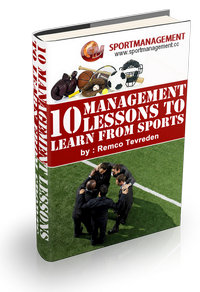Keith Joseph
 Conflict of interest is certainly not new to the world of sport. This is a very unfortunate reality and the impact is often disastrous.
Conflict of interest is certainly not new to the world of sport. This is a very unfortunate reality and the impact is often disastrous.
We have, in the recent past, received word of FIFA’s latest action in respect of Austin ‘Jack’ Warner, former FIFA vice president and president of CONCACAF and the Caribbean Football Union (CFU). The international body for football has terminated a television deal that it claims reflects a conflict of interest on the part of the former football official.
The television rights to the FIFA World Cup 2014 were given to the CFU. However it was discovered that the CFU, headed by Warner, sub-licensed the rights to JD International (JDI), which is Warner’s company. JDI then sold the rights to Jamaica-based SportsMax. FIFA is claiming that it had not approved the latter arrangement said to be worth millions.
To many involved in sport the matter seemed to be a case of conflict of interest in the sport of football. But there may well be others who would claim that this could not possibly have been unknown to FIFA before and as Warner claims, it may merely be a case of the organization getting after him in yet another way. Whatever about that there remains the ethical issue of conflict of interest in sport more generally.
Some may want to suggest that there is nothing wrong if an individual has an company involved in some aspect of sport and bids for contracts being made available by an organization on which he sits. The argument here is whether or not other companies engaged in the same activity has been afforded an equal opportunity to bid; that there is a level playing field for all such companies to access the right to bid and that the winner is based on the merit of its submission.
It seems that arguments in favour of ensuring the existence of a level playing field in all aspects of the process may emerge with more favourable support than those which suggest that companies in which executive members are involved should be debarred from bidding for opportunities made available on the table.
There must not be any bias or prejudice involved and where decisions are to be taken in favour of one bid over another the persons with interests must debar themselves from taking an active part in the process.
In reality, it is always difficult to arrive at any more acceptable situation. The president of any international sport organization would have emerged from one country and the organization in that country which nominated him/her. It is always likely that at some point the organization from which he/she originally came would be involved in a bid for something. Inevitably the best option is to excuse oneself from the decision making process to allow for fair play to prevail and the organization he/she heads to be seen to be operating above board on a level playing field.
It is virtually impossible to avoid conflict of interest in sport at one point or another. The key factor seems to be the course of action undertaken by the organization in which it is surfacing to ensure that it is not allowed to derail the over-arching objective of adhering to the lofty ethical values espoused by the organisation.
FIFA has said it had not approved the sub-licensing and had only become aware of it recently, but there was no secrecy about Warner’s involvement.
Indeed he held a photo opportunity with SportsMax executives to announce the deal, and according to SportsMax’s own website, the deal was worth between US$18-20 million.
The website said Warner “negotiated the deal on behalf of JDI” and “in his capacity as president of the CFU”.
Collins, who sits on the culture, media and sport committee, said the reforms to be announced by FIFA president Sepp Blatter needed to address conflicts of interest.
He said: “There should be a very strict code where members of FIFA’s executive committee have to declare all their financial interests.
“If it looks like senior officials are making money on the side as a result of their role in football, that is plainly wrong.
“For someone who has responsibility for the game of football to be making money out of the exploitation of that game cannot be right.”
Warner’s close connections to the television rights in the Caribbean were also revealed by former FA chairman Lord Triesman in his claims about improper approaches during England’s 2018 World Cup bid—Triesman said Warner asked for US$500,000 to be channelled through him to buy the television rights to show the 2010 World Cup on big screens in earthquake-hit Haiti.
Warner said FIFA’s action against the CFU was a publicity stunt.
See also the website of Keith Joseph http://www.kayjosports.com


